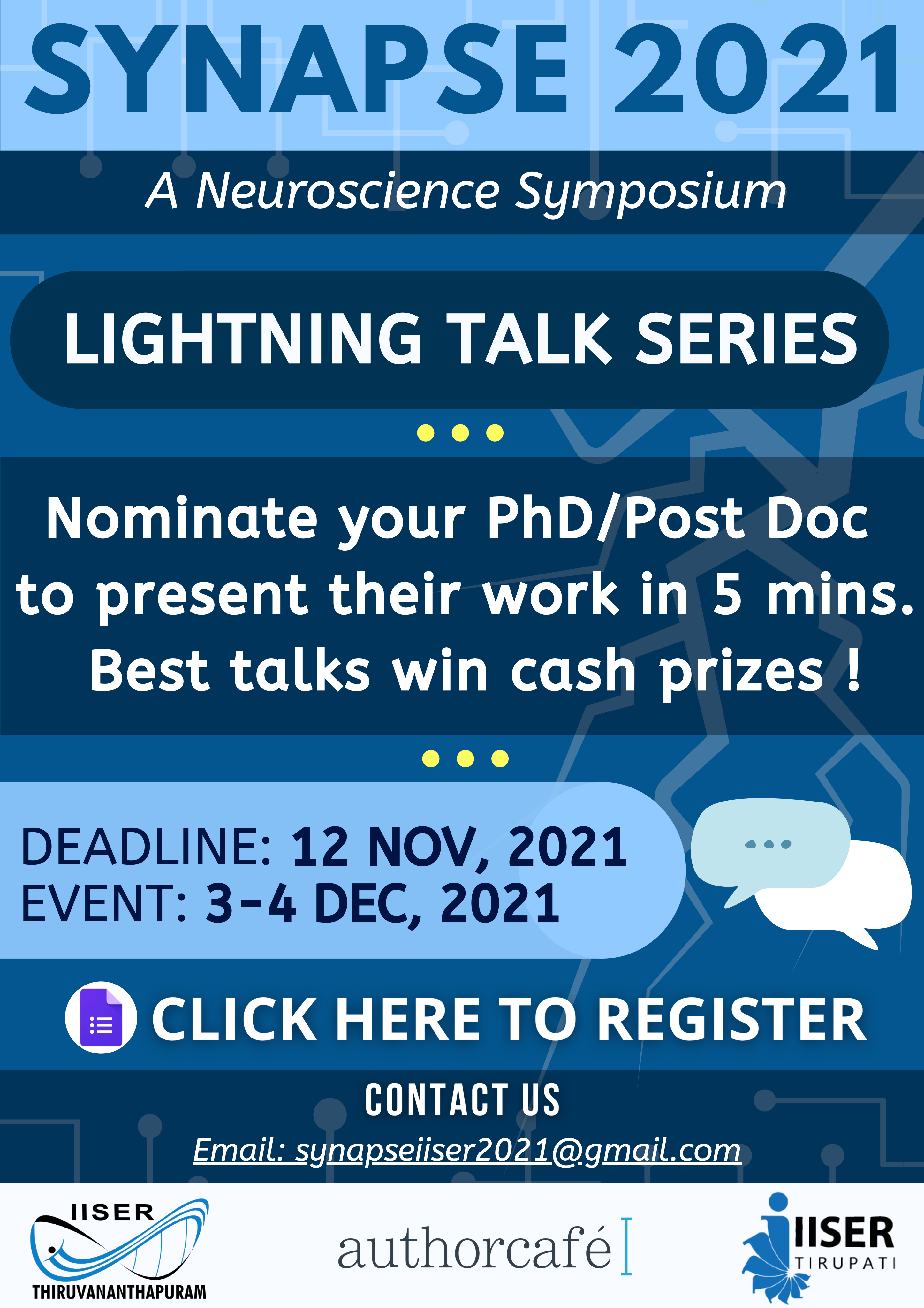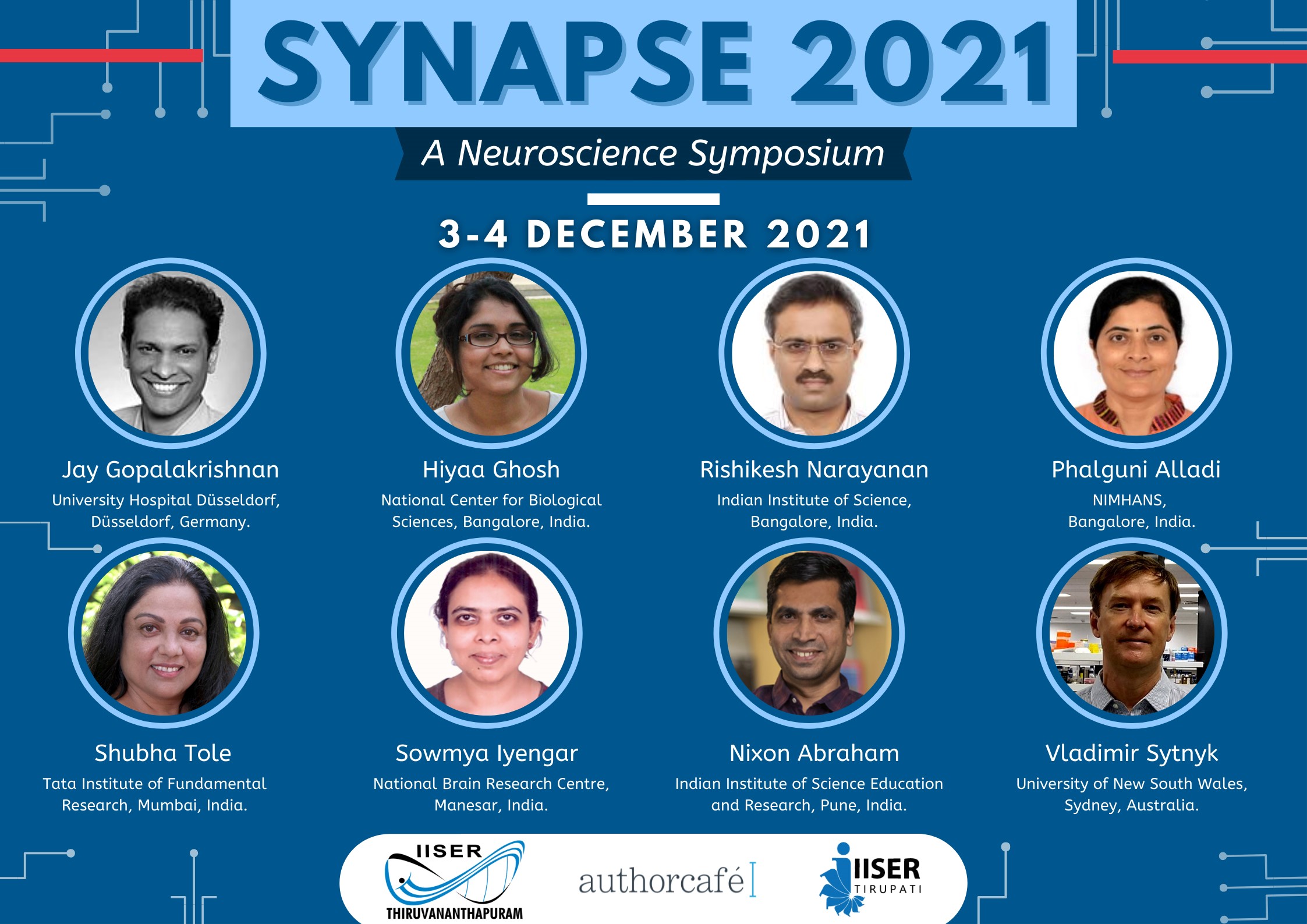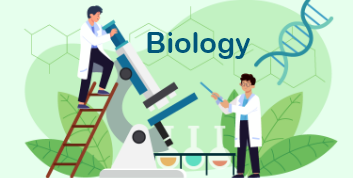Synapse: The neuroscience symposium series
This year, it is our pleasure to announce Synapse 2021 symposium featuring two days of regular talks by established and early-career researchers in the field, as well as Lightning talk sessions by PhD students and post-doctoral fellows. We bring to you an exciting line-up of speakers working in diverse areas of neuroscience from development of the hippocampus, to maintaining order in the adult brain, brain-behavior interactions from rodents to ravens, molecular mechanisms underlying neurodegenerative diseases, and the use of brain organoids to decode CNS pathologies. Further, this symposium will also serve as a platform for research students and post-doctoral fellows to showcase their work to the wider neuroscience community. We believe that this can be a great forum that would offer excellent visibility for your work.
Synapse 2.0 Details of the Speakers
| S.No. | Name of Speaker and Designation | Affiliation of Speaker | Title of the Talk |
| 1 | Prof. Jay Gopalakrishnan, Professor | Institute of Human Genetics, University Hospital Düsseldorf,Germany | Human brain organoids to decode human-specific biology and disease mechanisms. |
| 2 | Dr. Hiyaa Ghosh, Assistant Professor, NCBS. | National Center for Biological Sciences (NCBS),Banglore,India | Maintaining order in the adult brain: making new neurons and keeping well the adult ones. |
| 3 | Dr. Rishikesh Narayanan, Associate Professor, Molecular Biophysics Unit. | Molecular Biophysics Unit, Indian Institute of Science, Bangalore, India. | Heterogeneities in neural circuits: Origins and implications. |
| 4 | Dr. Phalguni Alladi, Neurophysiology, Scientist F, NIMHANS) | NIMHANS,Bangalore, India. | Parkinson’s disease: Our two windows to explore the neurobiological basis for etiopathogenesis. |
| 5 | Prof. Shubha Tole, Professor, Department of Biological Sciences. | Department of Biological Sciences, Tata Institute of Fundamental Research (TIFR), Mumbai, India. | How to make a hippocampus. |
| 6 | Prof. Sowmya Iyengar, Professor and Scientist VI, National Brain Research Centre. | National Brain Research Centre (NBRC),Manesar,India. | Brain-behavior interactions in the ‘Shining Raven’. |
| 7 | Dr. Nixon Abraham, Assistant Professor, IISER Pune. | Indian Institute of Science Education and Research,Pune,India | Smelling the force: mechanosensation through rodent nose. |
| 8 | Dr. Vladimir Sytnyk, Associate Professor, School of Biotechnology and Biomolecular Sciences | School of Biotechnology and Biomolecular Sciences, University of New South Wales (UNSW),Sydney, Australia. | The role of the neural cell adhesion molecule 2 in regulating the function of the beta-site amyloid precursor protein cleaving enzyme |
Synapse 2.0 Program Schedule
| DAY 1 – 3rd December- Friday | |
| 15:40 – 15:50 | Welcome Note by the Director. |
| 15:50 – 16:00 | Opening of Synapse 2.0 Symposium by |
| 16:00 – 16:40 | Talk by Prof. Shubha Tole on the Developing Brain (TIFR, Mumbai, India) |
| 16:40 – 17:20 | Talk by Dr. Hiyaa Ghosh on Glial biology (NCBS, Bangalore, India) |
| 17:20 – 18:00 | Lightning Talks (5 minutes per talk, 8 speakers) |
| 18:00 – 18:40 | Talk by Dr. Phalguni Alladi, Neurophysiology of Pakinson’s disease (NIMHANS, Bangalore, India) |
| 18:40 – 19:20 | Talk by Dr. Vladimir Sytnyk on Molecular Regulation of Synapses (UNSW, Sydney, Australia) |
| DAY 2 – 4th December- Saturday | |
| 15:30 – 16:10 | Talk by Dr. Rishikesh Narayanan on Heterogeneity in Neural Circuits (IISc, Bangalore, India) |
| 16:10 – 16:50 | Talk by Prof. Nixon Abraham on Mechanosensation through the Rodent nose (IISER Pune, India) |
| 16:50 – 17:20 | Lightning Talks (5 minutes per talk, 6 speakers) |
| 17:20 – 17:40 | TNQ Author Café Talk |
| 17:40 – 18:00 | Announcement of Winners and Prizes for Lightning Talks |
| 18:00 – 18:40 | Talk by Prof. Sowmya Iyengar on Brain-Behavior interactions in the Shining Raven (NBRC, India) |
| 18:45 – 19:30 | Talk by Prof. Jay Gopalakrishnan on Brain Organoids (Heinrich-Heine-Universität, Düsseldorf, Germany) |
| 19:30 – 19:40 | Concluding remarks by Director. |





